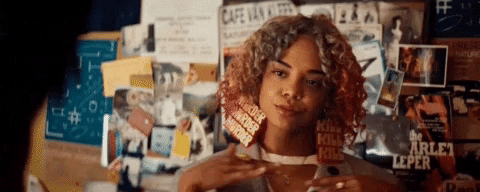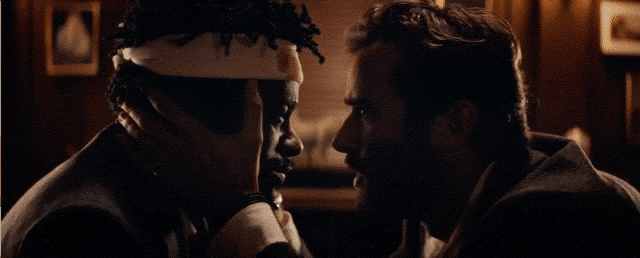
A surreal satire on the scary future of telemarketing.
On Hulu | 2018 | R | 1 hour 45 minutes
Genre: Comedy, Black Surrealism, Science Fiction
Why I watched: I heard a lot of buzz about Sorry to Bother You after it premiered at last year's Sundance Film Festival. When I missed it in theaters because of my own foolish mismanagement of time, I was beyond bummed. Lucky for me—and you!—the movie pushed to Hulu late last year, as part of a deal between the streaming service and independent film distributer Annapurna Pictures.
You might also like: There's nothing quite like Sorry to Bother You, but the Oscar-winning Get Out is a good place to start. When Chris, a young black man, visits his white girlfriend's family's estate, things aren't quite how they seem.... If you've somehow missed Get Out, which is an amazingly perfect horror film, you're in for a treat. It's not streaming anywhere, but it's available to rent on iTunes and Amazon Prime. If you want even more of Sorry to Bother You and Get Out's Lakeith Stanfield, you can always tune into Atlanta on Hulu.

In an alternate present-day version of Oakland, work is hard to come by. So when striver/stoner Cassius Green (Lakeith Stanfield) lands a job at a local call center, he's eager to work hard and get paid. But he finds the work unsatisfying: He's a black man attempting and failing to make sales to mostly white people over the phone. All of that changes, though, when a veteran staff member advises him to use his "white voice" during calls. Once he puts on his new-found signature vocals (David Cross dubbed over Stanfield), Cassius sees his luck begin to turn around.
When Cassius tells his activist-artist girlfriend Detroit (Tessa Thompson) about his success and subsequent promotion, she poses what might be the most important question of the entire film: "What do they sell?" What exactly is it that he's being asked to hock for "Worry Free," a Silicon Valley company run by sarong-wearing CEO Steve Lift (played by a maniacal Armie Hammer)? He's not sure, and neither are we. Cassius's rise to the top of the corporate ladder is also the beginning of his downfall, which might be better characterized as a "bizarre sideways bounce."
If you think you know where things are going with this. . . . well, I can assure you that you definitely don't.
While Sorry to Bother You comes quick with the humor—and it is sharply funny at times—it's much more than simply a dark comedy. Throughout the relatively short film, I can honestly say that I felt amused but also mystified, intrigued, and disturbed. Piling on top of this emotional whiplash, the film offers up a particularly uncomfortable viewing experience for anyone that has benefited from either capitalism or racism, as Cassius (despite being black and working-class) attempts to throughout the film. Of course, just because a viewing experience isn't easy, or even all that coherent, doesn't mean it isn't worth it. I urge you to stick this one out, even if it's tough to process at times.
Sorry to Bother You feels like an episode of The Twilight Zone with a 1970s aesthetic heavily influenced by a mess of Marxist theory. In other words, it has a sense of all-over-the-place-ness that drifts between brilliance and confusion. Maybe that's the growing pains of first-time filmmaker Boots Riley, frontman of the 25-year-old socially conscious band The Coup, but in all likelihood its a very intentional part of the film. Riley held onto the screenplay—even after author Dave Eggers suggested he sell it—until he found financing that would allow him the opportunity to also direct. I am so, so glad that he did, because in addition to precise dialogue, Riley delivers gorgeous shots, rich colors, and a booming soundtrack. The film clearly comes from the mind of a multidimensional artist, and I can't wait to see what he comes up with next.
I hope you all stream this one—it's an absolute trip.
Liz
